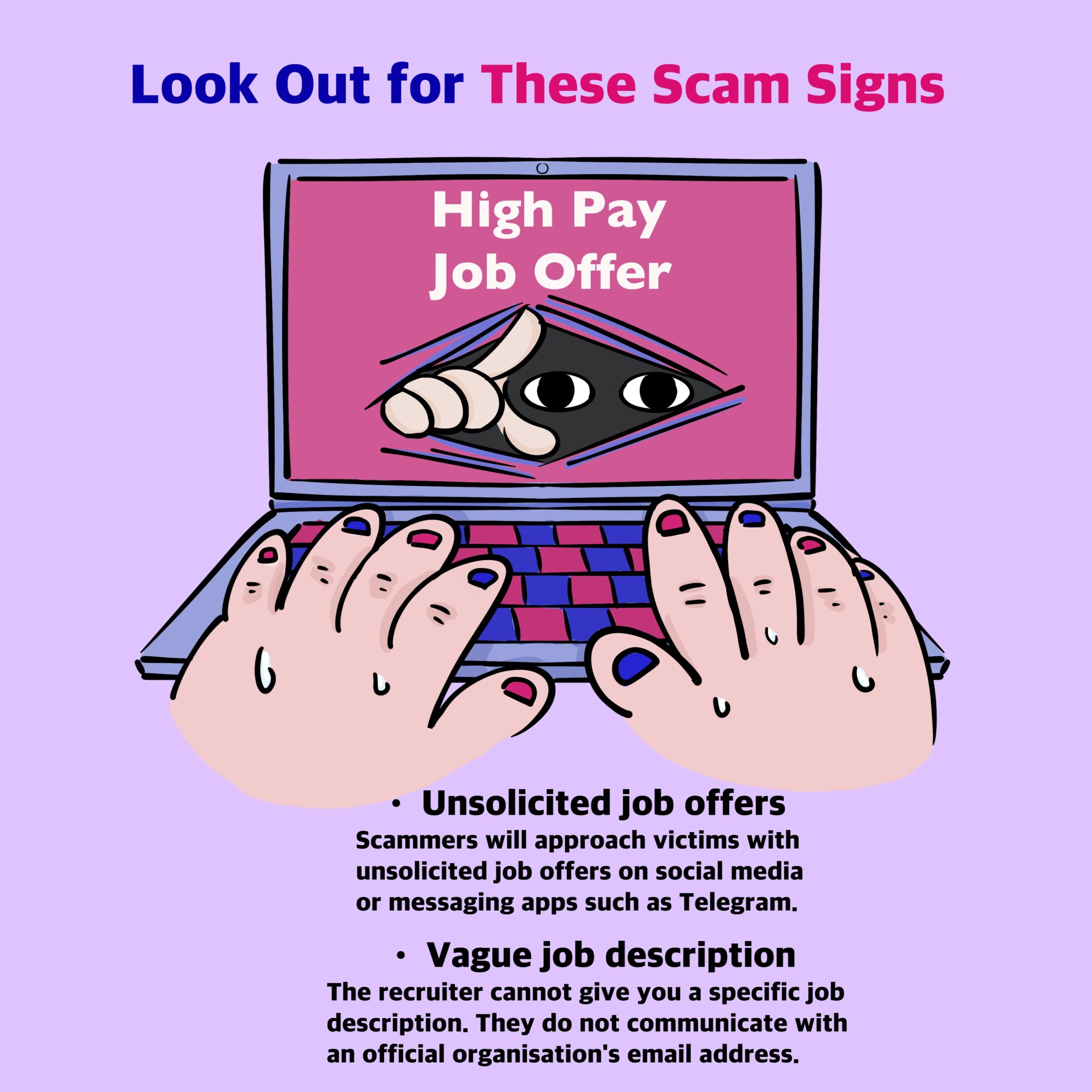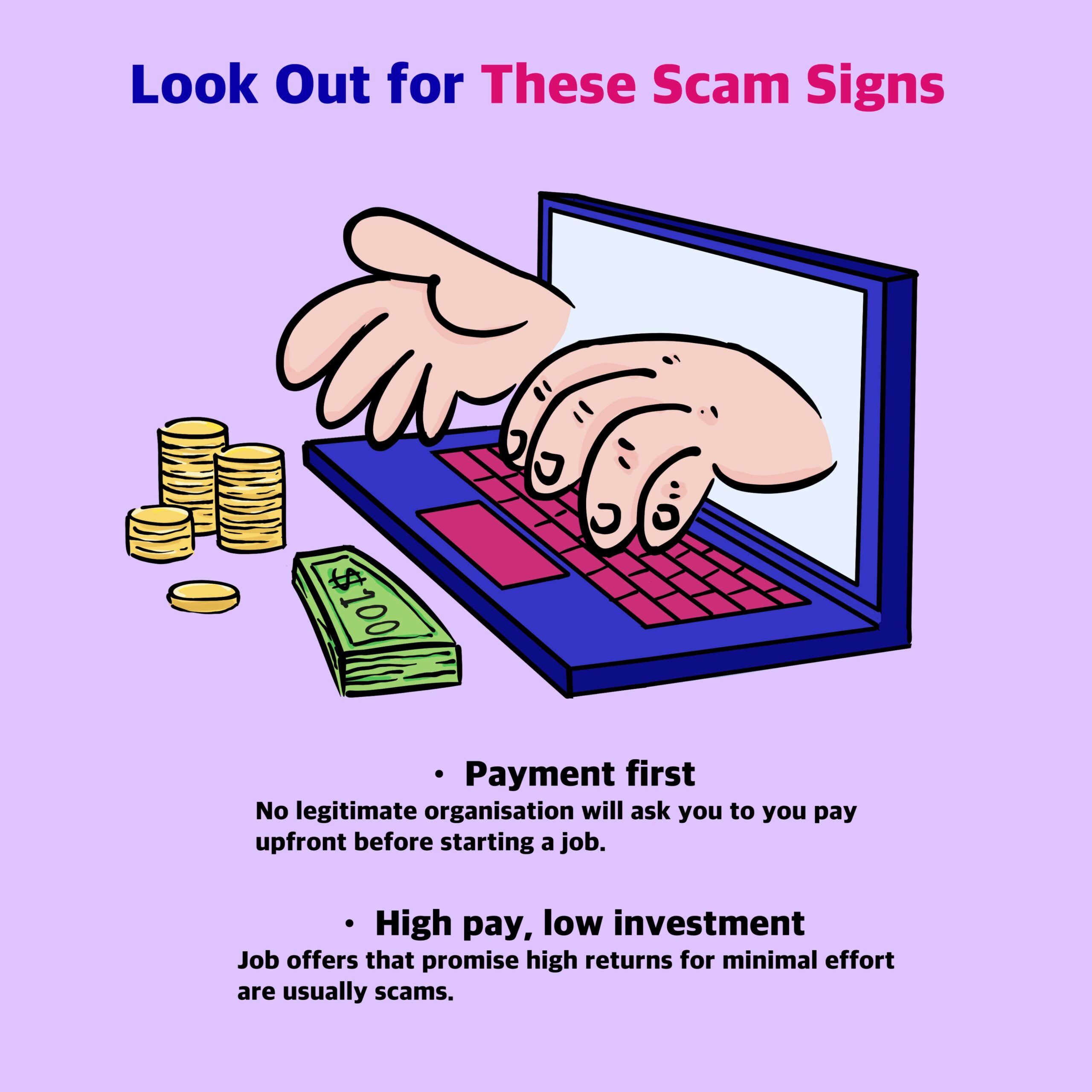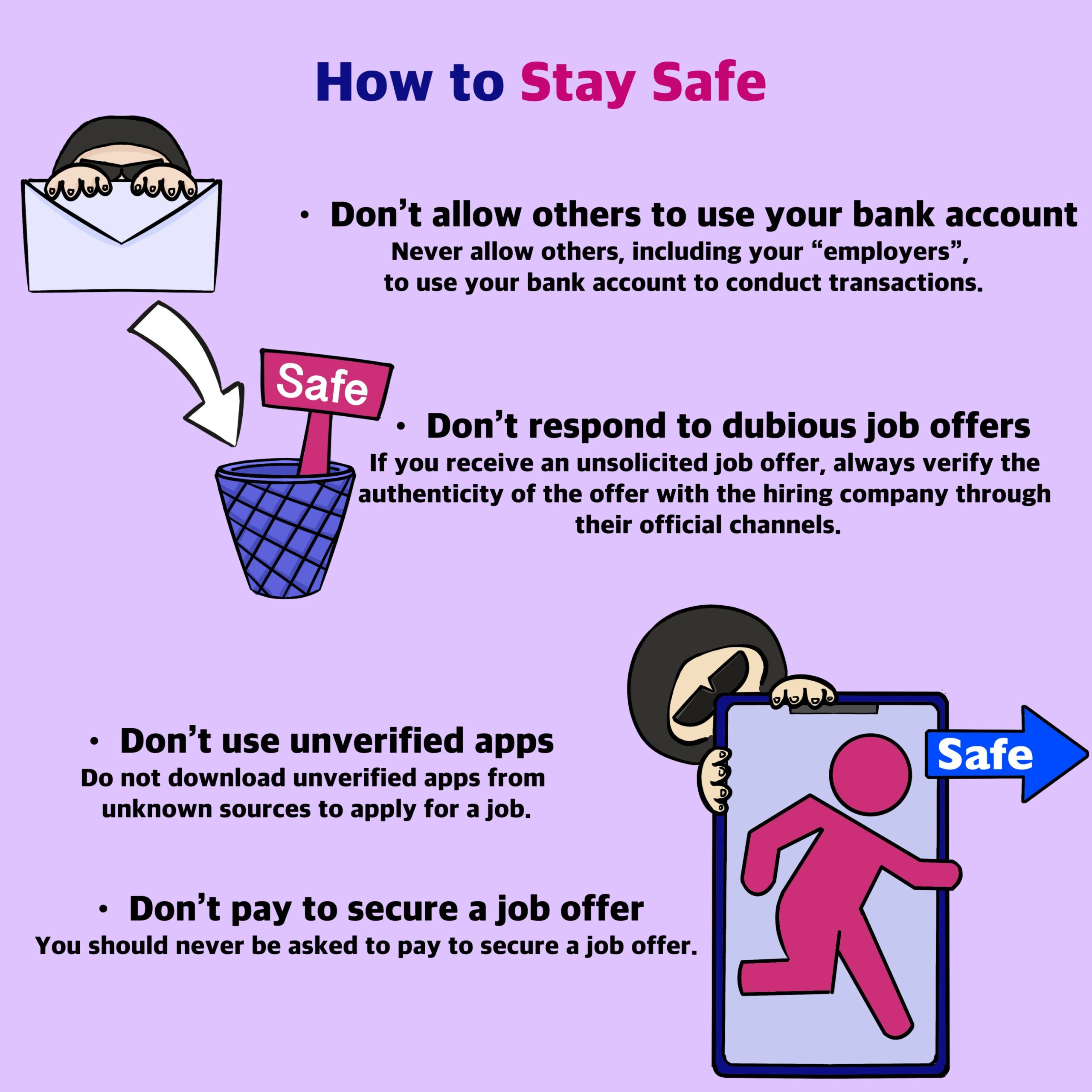5 Red Flags Jobseekers Should Watch Out For In Job Postings
The last two years gave rise to some of Singapore’s pandemic entrepreneurs. While some people turned passions into profitable businesses, others began to ponder their own career choices. If you want to explore the job market, your first challenge is to find job postings worth applying for. Make sure to analyse the hiring notices you come across carefully.
Here are five red flags on job advertisements that will help narrow down your choices. In addition, these will also help you focus on how to find out what job is right for you.
1. No Company Website Provided
Companies know that their official websites leave a lasting impression on their online visitors. What they disclose online says a lot about their values, culture, and what they offer to their new hires.
A job posting which excludes something as basic as a website is a definite red flag. Getting to know a potential employer is crucial. If you have to go through hoops to get basic information about a company, you might be dealing with a questionable one.
Having a website is the first item on this list because if you want to evaluate what job suits you, you need to be sure about the company you're interested in. You don't want to be scammed, after all. And while we’re discussing online safety, make sure you’re doing a safe job search that protects your data.
2. Questionable Job Description
Next to company information, the details on the kind of employee it is looking for are paramount. A well-written job description shows a company that appreciates clarity and efficiency.
Check out the skills required for the position. It is a good starting point when looking for the right job. Is there any mention of transferable skills that you already possess? Are the ones mentioned specific to helping applicants succeed in this particular role, or are they one-size-fits-all? When the qualifications are clear, the company expects of you. However, if the job descriptions are vague, you might have an unfocused employer with fuzzy goals. Worse, you might have a job whose objectives depend on the whims of your superior.
On the other hand, you might encounter a job description with too many requirements. It may indicate that the organisation is clueless about the type of employee they are looking for. As a result, the measures of success for the role will constantly evolve, which can be frustrating.
3. Positions Have Been Vacant for a While
Be sure to do your due diligence with this particular red flag. Since we want to concentrate on how to streamline the perfect positions for you, you need to pay attention to job openings that have not been filled for a while. Roles that have been vacant for months may be due to a company’s management style. There could be a high employee turnover rate, which means a company has difficulty retaining clients for some reason.
The company could also be putting off hiring due to financial constraints, which may be due to poor resource management by the executives. The perennially vacant post may also entail a problem that the company has not been paying attention to.
One way you can get informal information about a company is by analysing company reviews given by their actual employees. Granted that some of these may be written by disgruntled workers, you can still glean insights from their feedback. You can also ask about the details from these reviews during your interview, should you make it to that stage.
4. Too Many Clichés and Metaphors
Checking various job advertisements can help you narrow down what job is right for you. Be on the lookout for those peppered with jargon, cliches, and metaphors. It is quite telling when a company cannot be bothered to post a well-thought-out job description. It could be a workplace that does not value innovation and could stifle creative individuals.
Pay close attention to metaphors that possibly cover up the company’s actual work environment. A “fast-paced environment” might be a sign of a toxic workplace where burning out is inevitable. “Flexible hours” might mean there are no boundaries between one’s professional and personal life. You are better off avoiding a company where work-life balance is non-existent.
Whether you are about to begin your job search or are in the middle of it, determine your non-negotiables. You can also take a psychometric test to help you discover what your career dealbreakers are. Knowing what these are during your search can lead you to companies whose values align with yours.
5. The Earning Potential Is Too Good to be True
Compensation is a primary consideration for jobseekers. However, if a job posting talks about an earning potential that sounds too good to be true, it probably is.
When you see a salary range disproportionate to the effort required, think twice about applying with this company. The prospect of outrageous earnings, especially with supposed easy, part-time work, is a scammer's modus. If you want to focus your attention on how to find out what job is right for you, spend more time analysing job ads that do not make outlandish claims about how much you can earn with as little effort you put in.
How to Find Out What Job Is Right for You
Though there is indeed no such thing as a perfect job, it still helps to assess what kind of job fits you best. The effort you will put into analysing job postings will help you avoid the consequences of landing the wrong job. And with scammers becoming bolder and more imaginative about misleading people, it always pays to be more careful.
When looking through job postings, play detective and go beyond the catchy job title. There might be a supposed opening for manager-level work but a closer look at the responsibilities may not quite match the job title. Determine also how close your qualifications are to the actual job requirements. The easiest way to do this is to make a list of what is expected of each candidate. And then, check the qualifications that you meet or even exceed. Write down concrete examples and illustrations that will show your proficiency in these skills, in preparation for when you are ready to take the next steps of your job search.
In contrast, you shouldn't dismiss job openings just because it does not come with an impressive job title. Read through the description to know what applicants are expected to do. They may either be labelled as duties or responsibilities and most of the time, they are listed in descending order of preference. This is where clarity about your career objectives will pay off.
Maintain a positive attitude throughout your season of job-hunting. Looking through numerous job postings require a little bit of patience, but it pays off. The process of finding out what job is right for you can also help you read between job descriptions and catchy promises. This learning experience is a bonus.
So, #LetsGetToWork ! Get quick and nifty work advice from JobStreet with your phone. Simply download the JobStreet app on Google Play and the App Store for easier access.




